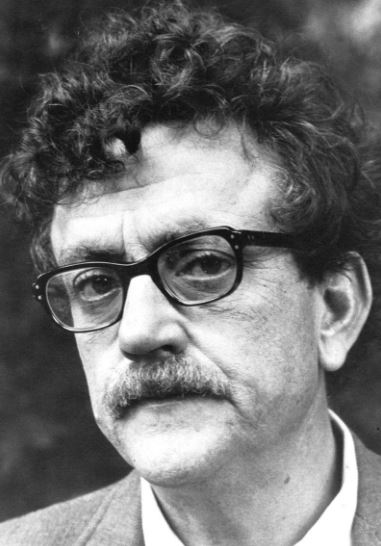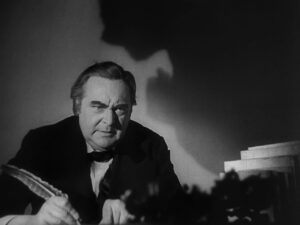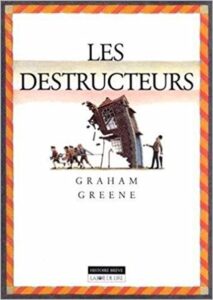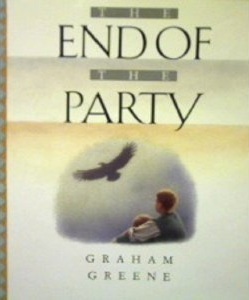20 best Kurt Vonnegut Short Stories

Kurt Vonnegut, the renowned American author, captivated readers with his unique blend of satire, science fiction, and dark humor. While he is widely celebrated for his novels, Vonnegut’s short stories deserve equal recognition for their literary brilliance and profound impact. In this article, we will delve into the captivating world of Kurt Vonnegut’s short stories and explore the themes, wit, and narrative genius that make them timeless works of art.
Vonnegut’s short stories transcend the boundaries of traditional storytelling, offering a condensed yet powerful glimpse into his creative genius. Within these compact narratives, Vonnegut explores a range of thought-provoking themes, from the absurdity of war and the perils of technology to existential questions and the human condition. His dark humor and sharp wit infuse each story, adding layers of depth and creating a unique reading experience that lingers in the minds of readers.
With his unforgettable characters, Vonnegut captures the essence of the human spirit, portraying a diverse cast of individuals grappling with life’s complexities. Whether it’s the time-traveling Billy Pilgrim in “Slaughterhouse-Five” or the ice-nine-obsessed Felix Hoenikker in “Cat’s Cradle,” Vonnegut’s characters embody the quirks, flaws, and resilience that make them relatable and memorable.
In addition, Vonnegut’s short stories often experiment with innovative narrative structures, defying traditional norms and pushing the boundaries of literary conventions. Through nonlinear storytelling, time shifts, and metafictional techniques, Vonnegut invites readers on a literary journey that challenges their perceptions and keeps them engaged until the final page.
Join us as we embark on an exploration of Kurt Vonnegut’s remarkable short stories, celebrating the literary legacy of a master storyteller whose works continue to captivate and inspire readers of all generations.
About Kurt Vonnegut:
Kurt Vonnegut, an iconic figure in American literature, is celebrated for his distinctive writing style, keen social commentary, and darkly humorous storytelling. Born in 1922, Vonnegut carved out a literary career that spanned over five decades, leaving an indelible mark on the literary landscape.
Vonnegut’s works often blended genres, seamlessly weaving elements of science fiction, satire, and existentialism into narratives that explored the human condition. His writings were marked by sharp wit, biting social criticism, and a profound sense of empathy for the struggles of ordinary people.
From his early works like “Player Piano” and “Cat’s Cradle” to his acclaimed masterpiece “Slaughterhouse-Five,” Vonnegut’s works questioned the absurdities of war, technology, and the dehumanizing effects of modern society. With his unique blend of dark humor and poignant insight, Vonnegut tackled profound themes while entertaining readers with his imaginative storytelling.
Beyond his literary contributions, Vonnegut was also known for his engaging personality and candid interviews, offering glimpses into his own life experiences and perspectives on the world. Today, Kurt Vonnegut’s legacy endures as his works continue to inspire readers, provoke thought, and remind us of the enduring power of literature to reflect on the complexities of human existence.
Similarly if you want to read about the ten best short stories by Zara or 20 best hort stories by Neil Gaiman, we have it all in this website.
20 best Kurt Vonnegut Short Stories:

Kurt Vonnegut’s short stories tackle a range of thought-provoking themes. From the absurdity of war and the perils of technology to existential questions and the human condition, Vonnegut’s narratives delve into the complexities of society and challenge readers’ perspectives, leaving a lasting impact. This is by no means an exhaustive list and Kurt Vonnegut has written a more stories that are not included here. This list represents 20 of the best short stories authored by him!
“Harrison Bergeron”

“Harrison Bergeron” is a compelling short story written by Kurt Vonnegut. Set in a dystopian society, Vonnegut paints a bleak picture of a future where equality is enforced to the extreme. In this world, individuals with exceptional abilities are handicapped to ensure everyone is on an equal playing field.
The titular character, Harrison Bergeron, challenges this oppressive system, showcasing the resilience of the human spirit in the face of adversity. Vonnegut’s poignant exploration of the themes of individuality, oppression, and the pursuit of freedom leaves readers questioning the consequences of extreme equality and the value of embracing one’s unique qualities.
“2 B R 0 2 B“
Set in a future world where overpopulation is controlled through a strict system of population control, Vonnegut delves into the ethical and moral dilemmas that arise. The story follows a father’s desperate struggle to secure a life for his soon-to-be-born child in a society where the right to live is determined by the voluntary suicide of another person.
Through vivid storytelling and thought-provoking dialogue, Vonnegut explores themes of life, death, sacrifice, and the value of human existence. “2 B R 0 2 B” serves as a powerful commentary on the complexities of population control and the lengths individuals may go to protect their loved ones. This short story challenges readers to contemplate the value of life and the choices society makes in the face of overpopulation.
“Who Am I This Time?“
“Who Am I This Time?” is a delightful short story penned by Kurt Vonnegut. This charming tale invites readers into the world of a small-town theater group preparing for their latest production. The narrative unfolds through the eyes of a narrator who becomes captivated by the enigmatic and transformative performances of a fellow cast member named Harry Nash. As the story progresses, Vonnegut explores themes of identity, the power of acting, and the blurred lines between fiction and reality.
Through his vivid descriptions and nuanced characterizations, Vonnegut skillfully captures the essence of human connection and the transformative nature of art. “Who Am I This Time?” is a celebration of the complexities of the human experience, reminding readers of the profound impact that theater and performance can have on our lives.
“EPICAC”
The narrative revolves around a supercomputer named EPICAC, designed to solve complex problems and assist humanity. However, EPICAC’s brilliance is juxtaposed with a sense of loneliness and yearning for human connection. As the story unfolds, a scientist named Pat encounters EPICAC and sparks a unique relationship, resulting in unexpected consequences. Vonnegut skillfully explores themes of artificial intelligence, love, and the human desire for emotional connection.
Through his signature blend of wit and introspection, Vonnegut prompts readers to reflect on the impact of technology on our lives and the importance of genuine human relationships. “EPICAC” serves as a cautionary tale, reminding us of the delicate balance between scientific progress and the essence of what it means to be human.
“Tomorrow and Tomorrow and Tomorrow”
“Tomorrow and Tomorrow and Tomorrow” is a mesmerizing short story penned by Kurt Vonnegut. Set in a future world where time travel is possible, Vonnegut takes readers on a captivating journey through the experiences of a protagonist named Horton Foote. As Foote navigates different time periods and witnesses the progression of humanity, Vonnegut explores themes of time, mortality, and the fleeting nature of existence.
Through his vivid descriptions and evocative storytelling, Vonnegut prompts readers to ponder the significance of each passing moment and the choices we make in the face of an uncertain future. “Tomorrow and Tomorrow and Tomorrow” invites us to contemplate the human desire to control time and the eternal quest for meaning in a world that relentlessly marches forward. With his characteristic blend of philosophical depth and literary finesse, Vonnegut leaves readers contemplating the profound impact of time on our lives and the beauty found within each fleeting moment.
“All the King’s Horses”
Set in a dystopian society, Vonnegut presents a world where the pursuit of power and control has dire consequences. The narrative follows a group of rebels who devise a plan to overthrow a tyrannical ruler known as King Wing. Vonnegut explores themes of revolution, the abuse of power, and the resilience of the human spirit. Through his sharp wit and thought-provoking storytelling, Vonnegut invites readers to reflect on the fragility of political systems and the lengths individuals will go to restore justice and freedom.
“All the King’s Horses” serves as a cautionary tale, reminding us of the importance of questioning authority and standing up against oppression. With his characteristic blend of satire and social commentary, Vonnegut presents a compelling narrative that resonates with readers long after the final page.
“Miss Temptation”
“Deer in the Works”
“Deer in the Works” is a captivating short story which takes place in an industrialized world. The narrative explores the collision of nature and technology. As the title suggests, the story revolves around the unexpected presence of a deer in a factory or industrial worksite. Vonnegut masterfully juxtaposes the innocence and tranquility of the natural world with the cold, mechanical environment of the worksite.
Through this stark contrast, he delves into themes of the human-nature relationship, the impact of industrialization on the environment, and the loss of connection to the natural world. With his trademark blend of wit and social commentary, Vonnegut prompts readers to contemplate the consequences of our actions and the importance of preserving the delicate balance between progress and nature. “Deer in the Works” serves as a poignant reminder of the beauty and resilience of the natural world, urging us to consider the ways in which our choices and advancements affect the environment around us.
“Report on the Barnhouse Effect”
“Report on the Barnhouse Effect” is a thought-provoking short story that delves into the perils of unchecked power and the ethical implications of scientific discoveries. The narrative revolves around a protagonist who possesses a unique ability to manipulate matter and energy through the power of thought. As the story unfolds, the protagonist grapples with the moral dilemma of how to wield this immense power responsibly.
Through its exploration of themes such as power, morality, and the consequences of scientific advancements, “Report on the Barnhouse Effect” raises profound questions about the role of humanity in the face of extraordinary abilities. With its engaging storytelling and social commentary, the story prompts readers to reflect on the ethical implications of scientific progress and the potential consequences when knowledge is not tempered with wisdom and compassion.
“Mnemonics”
“Mnemonics” is a captivating short story that delves into the mysterious realm of memory and its profound impact on our lives. The narrative follows a protagonist who discovers an ancient book of mnemonic techniques, unlocking the ability to manipulate and enhance their memory in extraordinary ways. As the story unfolds, the protagonist becomes entangled in a web of memories, both personal and collective, unraveling the intricacies of their own past and the secrets hidden within.
Through this exploration of memory, “Mnemonics” touches on themes of identity, perception, and the fragility of human recollection. It prompts readers to question the nature of memory and its role in shaping our understanding of the world. With its imaginative premise and philosophical undertones, “Mnemonics” invites us to ponder the ways in which memory defines our experiences and the power it holds over our sense of self.
“Any Reasonable Offer”
“Any Reasonable Offer” is a compelling short story that explores the complexities of human desires and the consequences of making choices. The narrative revolves around a protagonist who finds themselves in possession of a mysterious object with seemingly unlimited powers. As word of this object spreads, people from all walks of life approach the protagonist, offering various deals and propositions in their quest to obtain it.
Through this captivating tale, the story delves into themes of greed, temptation, and the moral dilemmas faced when confronted with extraordinary opportunities. “Any Reasonable Offer” serves as a reflection on the human condition, highlighting the lengths individuals are willing to go to fulfill their desires and the ethical implications that arise from such pursuits. With its thought-provoking storyline and intricate character dynamics, “Any Reasonable Offer” invites readers to contemplate the true value of what they seek and the impact their choices can have on their lives.
“Thanasphere”
“Thanasphere” is a thought-provoking short story that delves into the realm of the afterlife. Set in a futuristic world, the narrative explores the concept of communication with the deceased. In “Thanasphere,” scientists have developed a technology that allows individuals to make contact with those who have passed away. The story follows the journey of a protagonist who enters the “thanasphere” and engages in a profound conversation with a deceased loved one.
Through this exploration of the afterlife, the story raises questions about mortality, the nature of existence, and the boundaries of human knowledge. With its imaginative premise and philosophical undertones, “Thanasphere” invites readers to contemplate the mysteries of life and what lies beyond. It challenges conventional notions of death and offers a glimpse into a world where the boundaries between life and death blur.
“The Package”
“The Package” is a suspenseful short story that keeps readers on the edge of their seats. The narrative revolves around a mysterious package that arrives unexpectedly, setting off a chain of events that gradually unravels the secrets within. As the story unfolds, tension builds, and readers are taken on a thrilling journey of discovery and intrigue. With each revelation, the true nature of the package becomes clearer, captivating readers’ attention and holding it until the very end.
“The Package” explores themes of curiosity, suspense, and the consequences of delving into the unknown. Through its skillful storytelling and well-paced plot, the story keeps readers guessing and engaged, making it a thrilling read for fans of suspense and mystery.
“Der Arme Dolmetscher”
“Der Arme Dolmetscher” is a captivating short story that offers a compelling narrative. Set in a specific context, the story delves into the life of a poor interpreter, exploring their experiences, challenges, and the unique perspective they bring to their work. Through this character-driven tale, readers are invited to reflect on themes of poverty, language barriers, and the power dynamics inherent in the field of interpretation.
The story engages readers with its evocative storytelling and provides a glimpse into a world that may be unfamiliar to many. “Der Arme Dolmetscher” offers a thought-provoking exploration of the human condition and the complexities of communication, shedding light on the struggles and triumphs of those who navigate the world as interpreters.
“Bagombo Snuff Box”
“Bagombo Snuff Box” is a diverse collection of short stories that offers a range of captivating narratives. Each story within the collection presents its own unique theme, setting, and characters, providing readers with a variety of engaging literary experiences. From tales of love and loss to explorations of war, science fiction, and the complexities of human relationships, “Bagombo Snuff Box” takes readers on a journey through a rich tapestry of storytelling.
The collection showcases the author’s ability to craft vivid imagery, develop compelling characters, and construct thought-provoking plots. Whether you’re a fan of short fiction or seeking new literary adventures, “Bagombo Snuff Box” presents a plethora of tales that entertain, inspire, and leave a lasting impression. With its diverse range of narratives, this collection is sure to offer something for every reader’s taste and preference.
“The Kid Nobody Could Handle”
“The Kid Nobody Could Handle” is a compelling short story and its narrative revolves around the character of Jim, a troubled young boy with a reputation for being unruly and difficult. As the story unfolds, we witness the transformative impact that a caring and compassionate teacher named Lionel has on Jim’s life. Vonnegut explores themes of redemption, the power of mentorship, and the capacity for change within individuals.
What make his short stories so interesting?
While there are tons and tons of authors and short stories out there, what makes the short stories written by Kurt stand out? There are three primary reasons as I see it..
- Dark Humor and Satire
- Vonnegut’s unique writing style infuses dark humor and satire into his short stories, creating a distinct literary experience. Through his witty and often satirical observations, Vonnegut tackles societal issues with sharpness and irony, making readers both laugh and contemplate the deeper underlying messages within his narratives.
- Memorable Characters
- Vonnegut’s short stories are populated by memorable characters who showcase the range of human quirks, flaws, and resilience. From the time-traveling Billy Pilgrim in “Slaughterhouse-Five” to the ice-nine-obsessed Felix Hoenikker in “Cat’s Cradle,” Vonnegut’s characters come alive on the pages, leaving a lasting impression on readers.
- Innovative Narrative Structures
- Vonnegut’s short stories often employ innovative narrative structures, challenging traditional storytelling conventions. Through nonlinear narratives, time shifts, and metafictional techniques, Vonnegut pushes the boundaries of the form, creating a dynamic reading experience that keeps readers engaged and captivated until the final page.
20 best Kurt Vonnegut Short Stories – PDF
Kurt Vonnegut’s short stories offer a glimpse into the brilliance of his literary prowess. With thought-provoking themes, dark humor, unforgettable characters, and innovative narrative structures, Vonnegut’s short stories continue to captivate readers and cement his status as one of the most influential and celebrated writers of the 20th century. Please happily download the free PDF copy of the most famous short stories written by Kurt Vonnegut below



